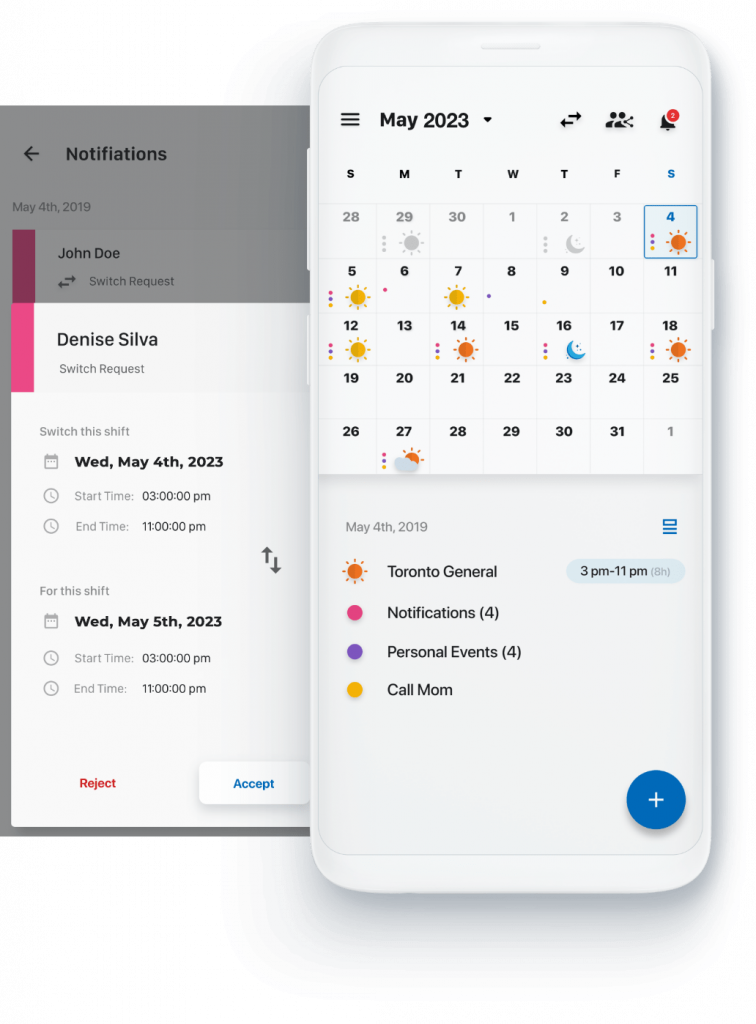Working shifts can have a significant impact on an individual’s sleep patterns, leading to sleep deprivation. This can have a negative impact on physical and mental health, as well as work performance. In this blog, we’ll be discussing the challenges of sleep deprivation for shift workers and how you can maintain a healthy work-life balance.
Understanding Sleep Deprivation
Sleep deprivation occurs when an individual does not get enough sleep to feel rested and refreshed. This actually has a technical name – sleep debt; the difference between the amount of sleep you get and the amount of sleep you need. Shift work can disrupt an individual’s sleep patterns, leading to sleep deprivation. This can cause a range of physical and mental health problems, including fatigue, decreased cognitive function, increased stress, and impaired mood.
Causes of Sleep Deprivation in Shift Workers
There are several factors that contribute to sleep deprivation in shift workers, including irregular sleep patterns, long hours, disturbances during sleep time and stress. Shift work can interfere with an individual’s natural sleep cycle, causing them to have difficulty falling asleep and staying asleep. Additionally, working long hours and managing work and personal responsibilities can increase stress and reduce the amount of time available for sleep.
The Consequences of Sleep Deprivation for Shift Workers
Sleep deprivation can have a range of negative consequences for shift workers, including decreased cognitive function, increased stress, and impaired mood. This can negatively impact work performance, leading to increased risk of errors, decreased efficiency, and decreased productivity. In addition, sleep deprivation can also increase the risk of physical health problems, including obesity, diabetes, and heart disease. There has also been a correlation cited between female shift workers, particularly nights, and cancer.
Strategies for Dealing with Sleep Deprivation
There are several strategies that shift workers can use to deal with sleep deprivation, including establishing a sleep routine, reducing stress, and limiting caffeine and alcohol intake. Establishing a sleep routine can help regulate sleep patterns, and reducing stress can help promote relaxation and improve sleep quality. Additionally, limiting caffeine and alcohol intake can also help improve sleep by avoiding substances that can interfere with sleep.
The Importance of Exercise and Healthy Eating
Exercise and healthy eating are also important strategies for dealing with sleep deprivation. Regular physical activity can help regulate sleep patterns, reduce stress, and promote relaxation. A balanced diet that includes a variety of nutrient-dense foods can help provide essential nutrients and improve overall physical and mental well-being, which can lead to improved sleep.
The Benefits of Sleep-Promoting Environment
Creating a sleep-promoting environment is also important for dealing with sleep deprivation. This can include making changes to the sleep environment, such as reducing noise and light, and using comfortable bedding. Additionally, reducing exposure to screens before bed can help improve sleep quality by avoiding blue light exposure.
Seeking Help from Healthcare Providers
If sleep deprivation continues to be a problem for shift workers, it may be necessary to seek help from a healthcare provider. Healthcare providers can provide recommendations for improving sleep, including lifestyle changes and sleep-promoting medications. Additionally, a healthcare provider can also assess for underlying health conditions that may be contributing to sleep deprivation.
Sleep deprivation can have a significant impact on the health and well-being of shift workers. Prioritizing sleep is essential for maintaining physical and mental health, improving work performance, and promoting relaxation.
A great way of learning how to thrive as a shift worker is by belonging to a community of like minded individuals who are going through the same struggles. Many have picked up on hacks and choices that have made the journey better and more enjoyable. A great place to start is by getting organized and seeing all of lifes’ activities in one, convenient place. Move your activities and shifts around on your calendar like a chess piece. Check out Turno and join thousands who have taken that first step to gaining back control over their schedules. Turno is the scheduling app that puts the power of choice in your hands. What will your next move be?






